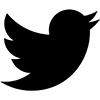Sara Zayed is on a mission to deconstruct misleading health marketing. Don't get in her way. Article by Tunmise Odufuye
The health industry has made it their mission to constantly confuse us about what belongs in our bodies. With an outrageous amount of misleading health marketing leaking into our daily lives, it takes acute passion and factual evidence to dispel the misconceptions of what a healthy lifestyle looks like. In other words, it takes Sara Zayed.
Who could start a fight with Dial's Vanilla Honey with Protein-Packed Yogurt liquid hand soap? Only Sara can. Watch her Instagram stories and you'll see that no health marketing is safe when she has an issue with it. With a certification in plant-based nutrition and as an ACSM certified personal trainer, Sara has made it her mission to fight back against deceptive health marketing.
When health marketing reaches her eyes, she springs into action. Is it true? Is it false? Should you take it with a grain of salt? Feeling the need to educate her audience on the "BS" surrounding health in mainstream media, she relentlessly displays factual evidence that dismantles claims made by larger health corporations.
Talking with Sara, you can hear the motivation rising as she runs through paragraphs of health discourse. Her words and reasoning change you instantly and force you to listen. If you're not ready, her intensity can paralyze you. In my interview with her, I quickly realized that her motivation is all in the messaging of health: come correct with the facts or else.
Who is Sara and why did she decide to start paying close attention to misinformation regarding health?
Sara: I went to Rutgers University and graduated in 2016 with a degree in Computer Science. But I always knew I wanted to do something in the medical field and I was into fitness and nutrition as early as high school. During high school, it was more of a personal journey for me because I felt like crap as a teenager. My skin was bad, I had no energy, and I couldn't sleep. When I would work out, I wouldn't feel well.
One day, I just said, "You know what? Even though there is a lot of misinformation about nutrition out there, I'm going to do the obvious and start by cutting out processed foods and sugars."
When I did that, I felt a whole new world open up in front of me. I had no idea my body could feel this good without pain, struggle, and being attached to the scale. But then, as I was going through college, I found myself wanting to share this information and my journey with people.
Given that you graduated with a degree in computer science, how passionate are you about nutrition?
Sara: I'm so passionate about fitness and nutrition. It's to the point where I just want this to be a full-time thing for me eventually. Recently, I went to the annual International Plant-Based Nutrition Healthcare Conference in Anaheim, California. I also have two certifications: one in plant-based nutrition and another in personal training from the American College of Sports Medicine.
I'm actively educating myself, trying to figure out what I want my path to be in the medical field. This to me is more than giving meal plans to people and telling them that they can trim inches off their weight.
What five words define who you are?
Sara: Passionate. Determined. Dedicated. Aggressive. Factual.
Yes, the aggression is always there with you. The perfect word to describe you and your passion for disrupting misleading information.
Sara: Yes, I have this aggression toward wanting to make sure that everyone knows what's right for them. I'm very in-your-face about this stuff and it's not to be disrespectful either. I sincerely believe the right information is out there and it should all be evidence-based. This lifestyle is rooted in evidence.
Is that the reason why you attacked "protein-packed yogurt" on Instagram last night? Does it have to do with your mission of educating your followers about misleading marketing information?
Sara: (Laughs) Yeah, I was like, "What is this?" It was this protein-packed yogurt-infused soap. I was like, "This is really marketing now." It's crazy because we don't realize it. These misleading marketing messages are everywhere. It's like down to soap. You know what I mean?
And if we are not aware of how marketing can change our perspective on the world without even realizing it, then our decisions will be controlled by corporations. These corporations don't care if we get sick or not.
Since plant-based nutrition is becoming more mainstream, I've been trying to call out all this clever marketing lately. If you just walk down the grocery aisle and you look at processed foods, you'll see the tactics they use to convince people that these foods are healthy.
It's one thing if you're not eating well and you know you're not eating well. The worst is when you think you're eating well but you're actually eating really poorly. And that's what I'm really scared of. People can make their own choices and I support that, as long as they're fully educated about the choices they make.
Do you think there is too much information out there?
Sara: I think that the more accurate, scientific information we have, the better because the human body is complex. I don't think there is a one-size-fits-all diet. Still, something I tell people to be wary about is this whole "scientists say" headline, which is dangerous. People will see that, click on it, and think the information has to be valid. The studies these scientists conduct might have been funded by industry magnates or the methods might not have been ethical.
What's your verdict on body imaging on social media and how it promotes self-hate?
Sara: It saddens me that the language around health and fitness is couched in conversations about how our bodies look. We can't separate health and fitness from someone's appearance. For some reason, if you're going after a healthy lifestyle, it always has to be because you want to lose weight and look better.
I don't think there's anything inherently wrong with it because we are all humans and want to be our best selves. You know, physically. But, I do think there's an issue when the desire to look better arises from self-hate and disgust with yourself.
I struggle with my body image too. It's worse for everyone nowadays because we have Instagram and Facebook, where everyone is posting their highlight reel. People are less and less educated. They're harming and poisoning themselves all in the pursuit of the elusive, perfect body type.
It's not a coincidence that obesity and eating disorders are on the rise. I think there's a root cause and the messaging has something to do with it. It goes back to the soap. If this soap is convincing you that protein is good for you, then it's in your subconscious that protein is good for you.
How does one love their own body?
Sara: Self-love is something we talk about a lot nowadays. There's a lot of discourse surrounding self-care and self-love, which is a good thing because it brings awareness. It's important but people don't talk enough about how to get to that place of self-love. Your journey doesn't start with self-love;, self-love is the journey.
You have to have your own goals. Define for yourself what makes something healthy.
If there was a diet for everybody, what would it look like?
Sara: The number one killer in America is heart disease and there's only one diet that's been proven to reverse heart disease and that's a whole food, plant-based diet. What I mean by that is a diet that's void of processed foods, sugars, and minimal to no animal protein. It would also be full of whole foods like whole grains, beans, legumes, nuts, seeds, fruits, and vegetables.
And if we have to talk about macronutrients, I would say that high carbs are better than low carbs because carbs are what your body runs on. When you do a low carb, high protein diet, you are actually starving your body because we need carbs.
Does our school system do a good job educating the youth about their own health?
Sara: Absolutely not. The biggest thing I would point to is milk being included in school lunches. The dairy industry encourages young children to drink dairy and it has a negative effect on our health.
The USDA recommends drinking milk every day and that's not just false, it's harmful. If you look at the ties between these food corporations and the USDA, you'll start to notice how large corporations are just trying to sell us things.
What's next for you?
Sara: Currently, I'm a Brand Ambassador for Veil Hijab. I'm working towards developing an online holistic training program, which will be part of the website I'm launching soon. Also, I'm beginning to work on a podcast for women and girls about topics like relationships, body image, fitness, etc. Finally, I'm looking to finish some formal schooling to become more credentialed so that I can continue providing the best information and value I can!





